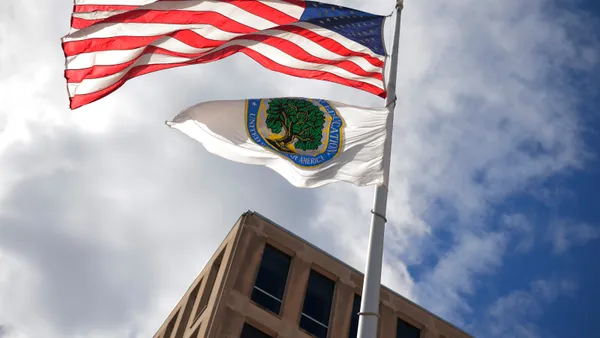Dive Brief:
-
The College Board and ACT would be freed to sell student data to New York colleges under legislation proposed there, a practice that is currently forbidden.
-
Identical bills would permit nonprofit testing providers to "license" the data to institutions if students expressly opt-in to providing their information.
-
Yet the plan has rankled privacy advocates who argue it would infringe on students' rights.
Dive Insight:
Testing giants have long sold colleges this data as a way to line their coffers, including through the well-known College Board Search. Students provide this information through surveys conducted in tandem with the admissions tests the companies make. Colleges then use those facts to help them recruit students, among other purposes.
But New York's education privacy laws are strict enough that it's unclear whether the testing providers' operations run afoul of them. The bills make explicit that licensing data would be an exception to the existing statute.
More than 20 states have laws directly prohibiting the sale of student data, according to the Parent Coalition for Student Privacy, an advocacy group.
A summary of the New York proposal states that while the current privacy legislation "has had value" shielding student data, it "may also have the profound and unintended consequence of thousands fewer students" enrolling in New York colleges. Proponents of testing providers' services argue they help connect students with a wider swath of institutions.
But the measures still attracted criticism from privacy activists, including the Parent Coalition, who in a memo detailing their opposition drew attention to the College Board and ACT's history of selling student information.
"This practice likely contributes to a thriving and largely unregulated commercial market in personal student information," the memo states.
College Board spokesperson Jerome White said in an emailed statement that the legislation "provides clarity" that its Student Search Service aligns with New York law, stressing that the program is voluntary and that students opt in.
Representatives for the bill sponsors, as well as the ACT, did not respond to Higher Ed Dive's request for comment Friday.
The U.S. Department of Education in May 2018 issued guidance that public K-12 schools should be more explicit with students and parents that the surveys in the exams are optional.
FairTest, an organization that supports limited uses of standardized assessments, has not taken a position on the bills, said its executive director, Bob Schaeffer.
But it does "strongly support" the idea that students' data should not be shared unless they or their parents are told exactly how it will be marketed and used, Schaeffer said.
"Clearly, that is not the case today," he said.
Editor's note: This story has been updated with a comment from the College Board.













